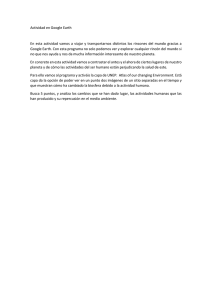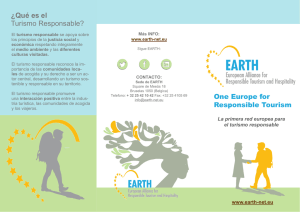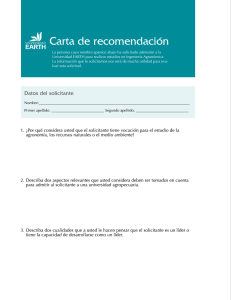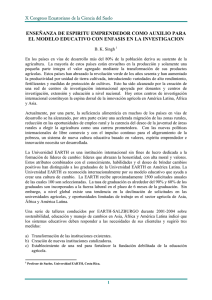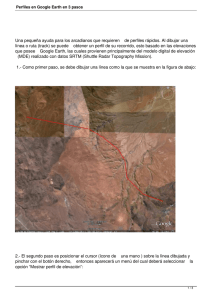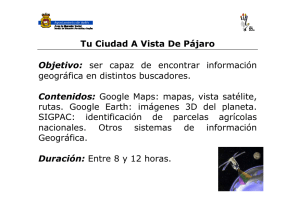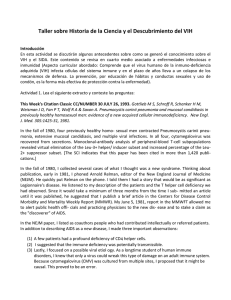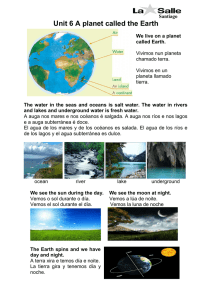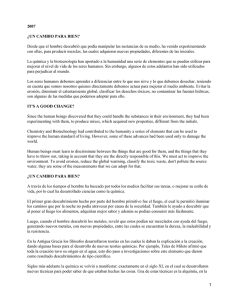UNIVERSIDAD DE ZARAGOZA
Anuncio
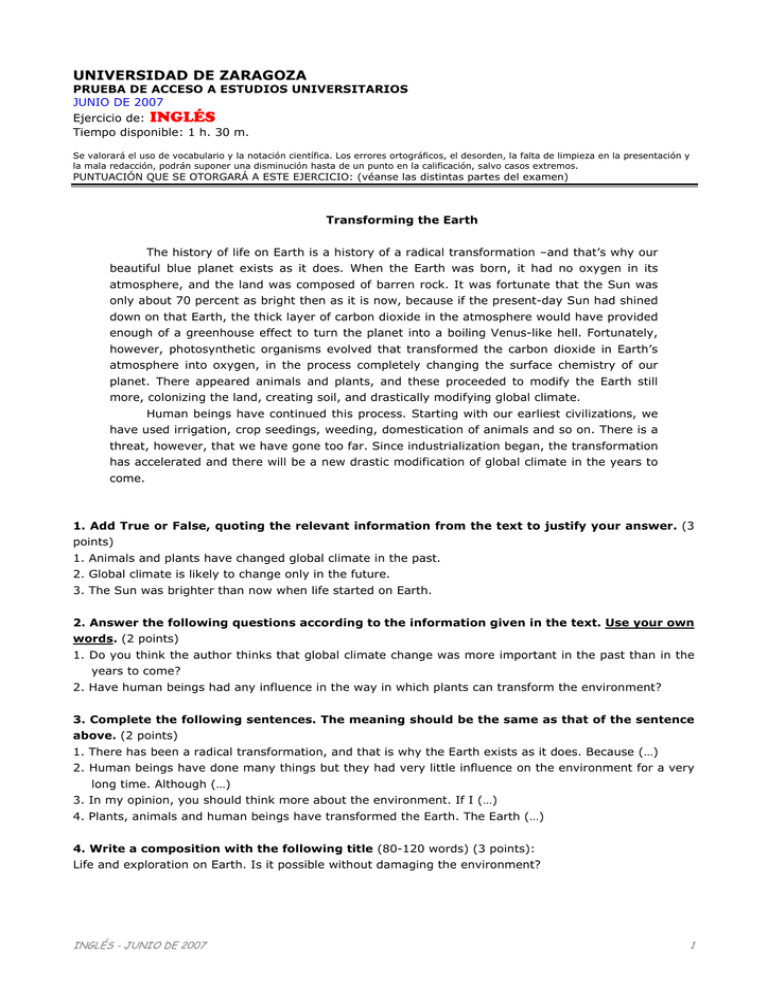
UNIVERSIDAD DE ZARAGOZA PRUEBA DE ACCESO A ESTUDIOS UNIVERSITARIOS JUNIO DE 2007 Ejercicio de: INGLÉS Tiempo disponible: 1 h. 30 m. Se valorará el uso de vocabulario y la notación científica. Los errores ortográficos, el desorden, la falta de limpieza en la presentación y la mala redacción, podrán suponer una disminución hasta de un punto en la calificación, salvo casos extremos. PUNTUACIÓN QUE SE OTORGARÁ A ESTE EJERCICIO: (véanse las distintas partes del examen) Transforming the Earth The history of life on Earth is a history of a radical transformation –and that’s why our beautiful blue planet exists as it does. When the Earth was born, it had no oxygen in its atmosphere, and the land was composed of barren rock. It was fortunate that the Sun was only about 70 percent as bright then as it is now, because if the present-day Sun had shined down on that Earth, the thick layer of carbon dioxide in the atmosphere would have provided enough of a greenhouse effect to turn the planet into a boiling Venus-like hell. Fortunately, however, photosynthetic organisms evolved that transformed the carbon dioxide in Earth’s atmosphere into oxygen, in the process completely changing the surface chemistry of our planet. There appeared animals and plants, and these proceeded to modify the Earth still more, colonizing the land, creating soil, and drastically modifying global climate. Human beings have continued this process. Starting with our earliest civilizations, we have used irrigation, crop seedings, weeding, domestication of animals and so on. There is a threat, however, that we have gone too far. Since industrialization began, the transformation has accelerated and there will be a new drastic modification of global climate in the years to come. 1. Add True or False, quoting the relevant information from the text to justify your answer. (3 points) 1. Animals and plants have changed global climate in the past. 2. Global climate is likely to change only in the future. 3. The Sun was brighter than now when life started on Earth. 2. Answer the following questions according to the information given in the text. Use your own words. (2 points) 1. Do you think the author thinks that global climate change was more important in the past than in the years to come? 2. Have human beings had any influence in the way in which plants can transform the environment? 3. Complete the following sentences. The meaning should be the same as that of the sentence above. (2 points) 1. There has been a radical transformation, and that is why the Earth exists as it does. Because (…) 2. Human beings have done many things but they had very little influence on the environment for a very long time. Although (…) 3. In my opinion, you should think more about the environment. If I (…) 4. Plants, animals and human beings have transformed the Earth. The Earth (…) 4. Write a composition with the following title (80-120 words) (3 points): Life and exploration on Earth. Is it possible without damaging the environment? INGLÉS - JUNIO DE 2007 1 CRITERIOS ESPECÍFICOS DE CORRECCIÓN Ejercicio de: INGLÉS Cuestión 1 (hasta 3 puntos). Se otorgará un punto a cada frase, siempre que tanto la denotación de Verdadero o Falso como su justificación sean correctas. En el caso de que la justificación sea excesiva, se podrá otorgar medio punto por frase. No puntuarán aquellas respuestas en las que la denotación de Verdadero o Falso no vaya acompañada de su correspondiente justificación o ésta sea incorrecta. Cuestión 2 (hasta 2 puntos). Se otorgará un punto a cada una de las respuestas, valorando en igual medida la comprensión (0’5 puntos). Esta cuestión trata de evaluar no sólo la comprensión sino la capacidad de comunicar información deducida de la lectura. Se intentará evitar, por tanto, la reproducción literal de expresiones del texto. Cuestión 3 (hasta 2 puntos). Se concederá 0’5 puntos a cada frase completada correctamente. Se valorará la adecuación semántica (0’25 puntos) y la corrección de la estructura morfosintáctica (0’25 puntos) más que los detalles de ortografía. Cuestión 4 (hasta 3 puntos). Un criterio excluyente a la hora de puntuar en este apartado será la falta de adecuación al tema propuesto o la reproducción literal y continuada de fragmentos del texto inicial. La redacción se corregirá atendiendo a un conjunto de aspectos y no sólo a la corrección gramatical y ortográfica. Así, deberá tenerse en cuenta: el dominio del léxico, la organización de ideas, la coherencia, la creatividad, la capacidad para transmitir un mensaje, etc. La puntuación se distribuirá del siguiente modo: - 1 punto por la corrección morfosintáctica. - 1 punto por la utilización adecuada del léxico, riqueza del mismo y creatividad. - 1 punto por la organización y presentación de ideas, la coherencia en la exposición y la capacidad de comunicar. INGLÉS - JUNIO DE 2007 2
